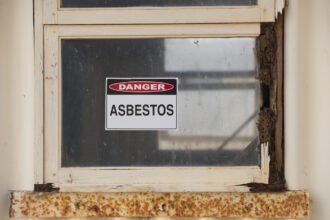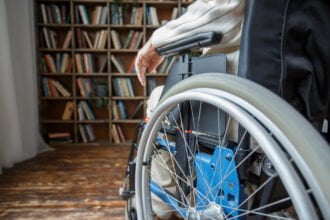When something hurts, we experience an unpleasant and distressing sensation we call pain. When there is pain, it is usually a sign that something is amiss. You are the best person to determine the severity of your pain.
Acute pain usually occurs suddenly and is triggered by a specific cause. It’s sharp, intense but doesn’t last very long. Once the underlying cause is resolved, the pain also goes away.
We experience acute pain if we get injured, have surgery, get dental work done, go through labor and childbirth.
Chronic pain is defined as pain that persists for more than six months. It doesn’t stop even after we’ve recovered from the injuries or illnesses that caused it because the pain signals can stay in our nervous system for weeks, months, or years. It’s also possible to develop chronic pain without any prior injury.
Chronic pain is usually associated with headaches, back pain, arthritis, fibromyalgia, nerve pain, and cancer. When you experience chronic pain, it triggers stress hormones that affect your appetite, deplete your energy, limit your ability to move around, and cause muscle tenseness. Chronic pain can also affect you emotionally, leading to anxiety and depression.
Back pain affects millions of Americans. The abrupt onset of acute back pain is generally a result of a recognizable injury. It can go away in a few days or last for as many as six weeks. The onset of chronic pain is more gradual, and it can worsen over time.
If you’ve been experiencing pain for more than three days, you should seek medical attention. Your doctor will ask you about your symptoms and help you understand back pain differences and possible causes.
They will look for the problem in four regions of your back: the cervical region (neck), thoracic region (upper back), lumbar region (lower back), and sacral and coccyx regions (tailbone).
After finding out how long you’ve been experiencing pain and where they’ll start looking for possible causes. It’s important not to ignore or treat it on your own with over-the-counter painkillers because back pain can be a symptom of a serious condition such as:
- Vertebral fractures as a result of severe trauma;
- Osteomyelitis, a condition in which the vertebral body becomes infected;
- Epidural abscess between vertebrae and spinal cord;
- Cauda equina syndrome, a potentially fatal neurological condition;
- Metastatic cancer – cancer that has progressed to the spine from another region of the body.
Acute Back Pain
The most common causes for acute back pain are strains or sprains to soft tissues like muscles, tendons, and ligaments. This can be triggered by lifting heavy objects, especially if your posture is poor. Acute back pain can also come from muscle spasms.
Minor cases of acute back pain usually go away on their own. Patients are encouraged to take it easy for a couple of days, but no more than that since prolonged bed rest can exacerbate acute back pain. Your doctor may instead prescribe a pain reliever to help you move more easily without discomfort. They may also recommend physiotherapy so you can stretch and strengthen your back muscles. Heat and cold therapy, as well as chiropractic care, can provide quick relief.
You can also benefit from medications that reduce inflammation and relieve pain:
- Analgesics (aspirin, acetaminophen);
- Non-steroidal anti-inflammatory drugs (NSAIDs) (ibuprofen, naproxen;
- Muscle relaxants, used short-term to relieve strained muscles;
- Topical pain relievers.
Some patients find that applying heat and/or cold to their skin can help reduce inflammation, relieve discomfort, and enhance mobility. Vigorous exercise is not recommended while recovering from acute back pain.
Chronic Back Pain
The spine and the structures that support it are quite intricate. Chronic back pain can be caused by a variety of issues affecting these structures, such as:
- Sciatica;
- Degenerative disc disease;
- Herniated disc;
- Spinal stenosis;
- Osteoarthritis;
- Compression fractures.
Serious injuries can cause chronic back pain. There is a greater chance of developing chronic pain if these structures are severely damaged or if particular structures such as the nerves get damaged. Chronic pain was traditionally attributed solely to structural damage. However, even severe structural damage does not always result in chronic pain. Since most tissues heal in a few months, the pain associated with them should also subside, but what if it doesn’t?
More recent studies show that chronic pain is caused by the brain, spinal cord, and related nerves becoming more sensitive to pain stimuli. The sensation of pain is regulated by the brain, not the damaged tissues, and the pain persists even after injured structures have healed.
It is also possible for the pain to increase over time, even when there isn’t much to cause it or when movements or stimuli that normally don’t cause pain at all start to cause more pain. Chronic pain may sometimes be disproportionate to the severity of the initial injury because the body’s pain response becomes hypersensitive. The hypersensitivity associated with chronic pain can also make someone more sensitive to other stimuli like noise, light, touch, or stress. This persistent sensitivity can maintain the chronic pain cycle.
Unfortunately, we do not yet understand why some injuries lead to hypersensitivity and chronic pain while others don’t.
Because of the risk of developing tolerance or becoming addicted, most oral medications for pain relief are not recommended long-term. Other options are more suitable for managing chronic back pain, such as physiotherapy, pain management injection, laser therapy, and chiropractic care.
Exercise is extremely important in managing chronic back pain. It’s one of the first things you should try with the help of your doctor and spine physical therapist. Exercises must be adapted to your unique symptoms and medical condition to be effective. It’s also important to keep up with the exercise routine at home.
Your physiotherapy will focus on retraining your posture, core strengthening, assessing pain tolerance, and increasing flexibility.
Pain management injections can also be very effective and include nerve blocks, epidural steroid injections, and nerve ablations. Doctors usually recommend them when the source of the pain has already been identified but can sometimes be used to rule out specific causes. These injections stop or reduce the pain temporarily, but they are also not long-term solutions, so they shouldn’t be used in isolation.










